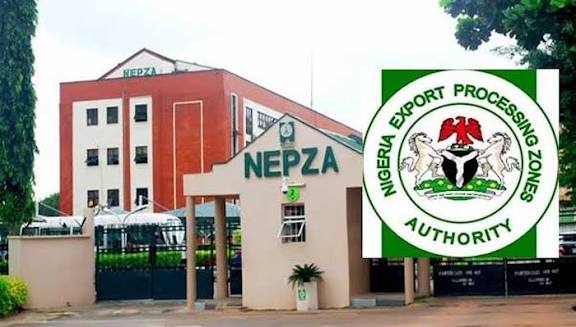The authority reaffirmed that its law enforces a 10-year ban on industrial strikes and lockouts within Free Trade Zones, FTZs, including the Dangote Refinery
Following the recent face-off between the Dangote Refinery and Petrochemicals Company and the Petroleum and Natural Gas Senior Staff Association of Nigeria, PENGASSAN, the Nigeria Export Processing Zones Authority, NEPZA, has insisted that the 10-year strike ban on Dangote Refinery and other companies at the Free Trade Zones, FTZs, must be respected.
The authority reaffirmed that its law enforces a 10-year ban on industrial strikes and lockouts within Free Trade Zones, FTZs, including the Dangote Refinery.
This was disclosed by NEPZA’s Managing Director, Dr Olufemi Ogunyemi, in a statement on Thursday in Abuja.
He noted that this policy was to protect industrial harmony and investment stability.
Recall that PENGASSAN had last week shut down critical oil and gas facilities, alleging that the refinery sacked about 800 workers who had joined the union.
Dangote, however, explained that it only disengaged a few workers accused of sabotage, as part of internal reorganisation.
Ogunyemi expressed concern over what he described as frequent and excessive external union infiltrations in the zones.
According to him, such actions undermine the stability and competitiveness of businesses operating under the Free Trade Zone framework.
He stated that the NEPZA Act provided clear legal backing for the 10-year prohibition on strikes and lockouts from the commencement of operations within any zone.
“Section 18(5) of the NEPZA Act states that there shall be no strikes or lock-outs for a period of ten years following the commencement of operations within a Zone.
“And the Authority shall resolve any trade dispute arising within a Zone,” Ogunyemi said.
He clarified that the law does not strip workers of their rights to form or join trade unions or engage in collective bargaining but simply channelled dispute resolution through the Authority.
“We are pleased that the conflict has been de-escalated. Dangote Refinery is a declared Free Trade Zone benefiting from tax incentives and customs waivers designed to strengthen the economy, and NEPZA regulates it,” he said.
Ogunyemi said that the Free Trade Zone scheme, which has operated in Nigeria for more than 30 years, was designed to attract investment and accelerate industrialization, in line with global best practices.
He emphasized that NEPZA operated a one-stop-shop administrative model to fast-track processes and resolve disputes internally.
The Managing Director urged trade unions to always direct their concerns through the Authority rather than external confrontation.
He said, “The NEPZA Act requires all stakeholders including government agencies, investors, and corporate entities to respect the Authority’s one-stop-shop status in overseeing the scheme.
“The Section 24(1) of the Act restricts the application of external laws within the zones. Any law from the customs territory can only apply in the Free Zones if it is not inconsistent with the NEPZA Act.
“Consequently, in cases of conflict between the Trade Unions Act or the Trade Disputes Act and Section 18(5), the provisions of Section 18(5) take precedence as the more specific regulation governing Free Zones,” he said.
Ogunyemi commended President Bola Tinubu for his swift intervention in resolving the refinery dispute, describing it as a demonstration of leadership and commitment to protecting national assets.
The MD stated that while labour-related issues were an inevitable part of industrialization, resolving them lawfully and swiftly remained crucial for maintaining investor confidence and ensuring Nigeria’s continued industrial growth.
NEPZA, established in 1992, currently regulates and monitors more than 50 Free Trade Zones across the country. It provides fiscal incentives, streamlined regulations, and an enabling environment for export-oriented manufacturing, services, and technology enterprises.
NAN
